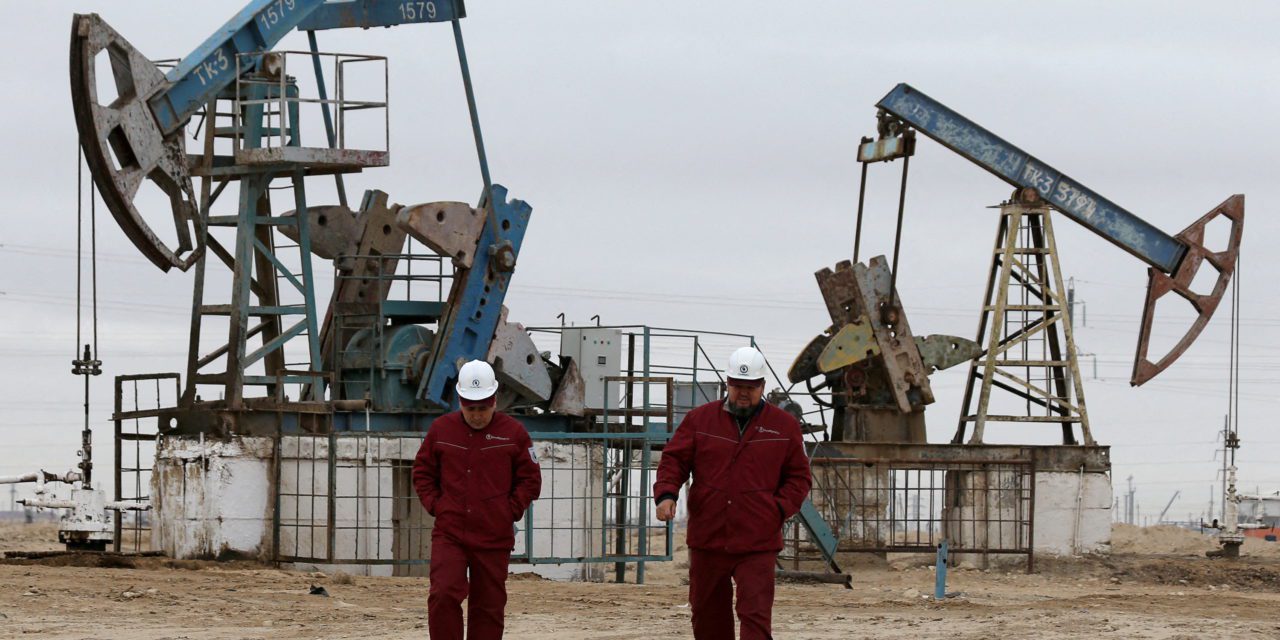By Stephanie Kelly
NEW YORK (Reuters) -Oil prices jumped over 3% on Monday, with investors worried about tighter supply as mounting civilian deaths in Ukraine increased pressure on European countries to impose sanctions on Russia’s energy sector.
Global benchmark Brent crude jumped $3.14, or 3%, to settle at $107.53 a barrel. U.S. West Texas Intermediate crude rose $4.01, or 4%, to settle at $103.28 a barrel. Trading was volatile with both contracts rising after being down more than $1.
German Chancellor Olaf Scholz said Russian President Vladimir Putin and his supporters would “feel the consequences” of events in Bucha, outside the capital Kyiv, where a mass grave and tied bodies shot at close range were found.
Western allies would agree on further sanctions against Moscow in coming days, he said, though the timing and reach of the new package was not clear.
France’s President Emmanuel Macron suggested sanctions on oil and coal, adding there were very “clear clues pointing to war crimes” by Russian forces.
Since Russia’s Feb. 24 invasion of Ukraine, sanctions and buyers’ avoidance of Russian oil have already dented output and raised fears of tighter supplies. [IEA/M]
“As the U.S. and EU reduce purchases of Russian oil, it leaves China and India as the main customers that remain and many of the refineries in those countries might be reluctant to purchase Russian oil with the negative public relations associated,” said Andrew Lipow, president of Lipow Oil Associates in Houston.
Crude dropped by about 13% last week after President Joe Biden announced a record U.S. oil reserves release and as International Energy Agency members committed to further tapping reserves. Brent crude hit $139 last month, its highest since 2008.
Saudi Arabia’s state oil producer Aramco raised its May official selling price to Asia for its flagship Arab Light crude, according to pricing document seen by Reuters.
“That suggests demand for oil is still very strong, and by doing that it’s going to drain oil supplies from the United States and make supplies tighter,” said Phil Flynn, an analyst at Price Futures Group.
Oil gained support from a pause in talks in Vienna to revive the Iran nuclear deal, which would allow a lifting of sanctions on Iranian oil. Iran blamed the United States for the halt.
Downward pressure came from a truce in Yemen, which could ease threats to supply in the Middle East.
For the first time in the seven-year conflict, the United Nations has brokered a two-month truce between a Saudi-led coalition and the Houthi group aligned with Iran. Saudi oil facilities have come under Houthi attack during the fighting.
(Reporting by Stephanie Kelly in New York; additional reporting by Alex Lawler in London and Florence Tan and Isabel Kua in Singapore; Editing by Marguerita Choy, Mark Porter and David Gregorio)
FILE PHOTO: Workers walk as oil pumps are seen in the background in the Uzen oil and gas field in the Mangistau Region of Kazakhstan November 13, 2021. REUTERS/Pavel Mikheyev


